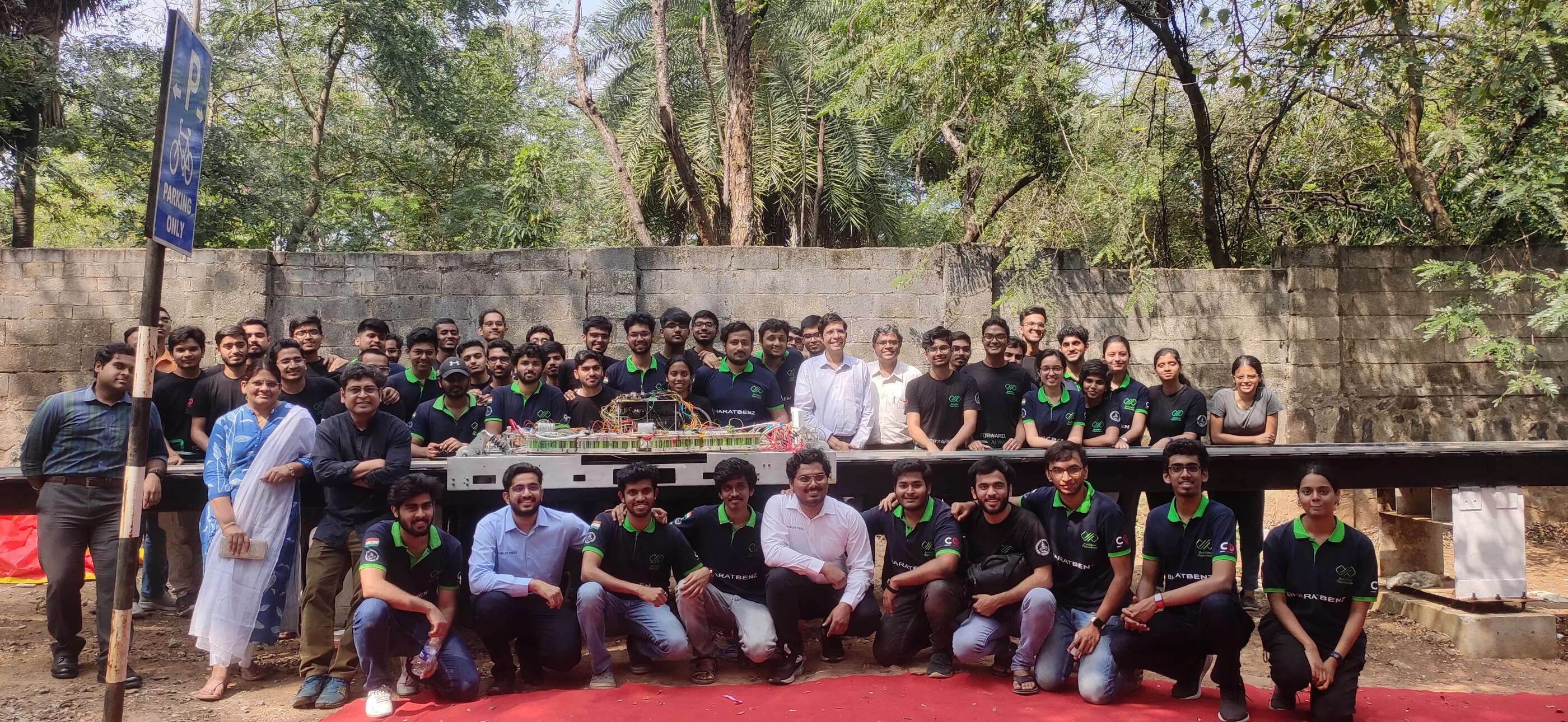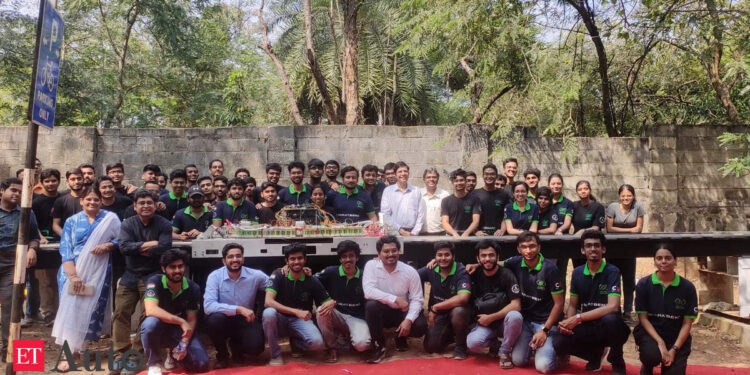
Chennai: In about six months, India will have its first cargo hyperloop track for testing. A 400-metre track, in a tube of 2-metre diameter, will be constructed in IIT Madras’ new ‘Discovery Campus’ at Thaiyur, near Chennai. A team of engineers have been working on the hyperloop project named Avishkar at IIT Madras since 2018. The team has participated in various international competitions.
(Hyperloop is an ultra-high-speed ground transportation system for passenger and cargo. It has three essential elements: tubes, pods, and terminals.)
Now, in partnership with a technology startup named TuTr Hyperloop, the project is being prepared to go through the development stages for commercialisation. In the first phase, the hyperloop project will be carrying cargo. Exploratory talks are on with the Chennai port, and airport authorities for adopting the high speed transportation technology to transport goods. The target speed range for the cargo version is 100-250 kmph, while for the inter-city passenger version the target is 600 kmph and above.
“By the end of this academic year, which is like mid of this calendar year, we should have the basic full stack of Hyperloop ready at the subscale. But going forward, we will want to examine various implementations of contactless propulsion. It doesn’t have to be only a linear induction motor. It could be a synchronous, or linear synchronous motor,” Prof. Satya R Chakravarthy, Department of Aerospace Engineering, IIT Madras, told ETAuto.
A lab level advanced version of the pod was unveiled and demonstrated at IIT Madras on Saturday, in the presence of senior representatives of industry partners, and technologists. According to Prof. Chakravarthy, once ready, the 400-metre test track will be the world’s largest hyperloop test facility.
Indian frugal engineering is commended globally, and the hyperloop project’s engineering team wants to live up to that reputation. “We designed the linear induction motor in 2020 by ourselves. The manufacturing is also done in-house, and we have a patent on it,” Hari Krishna, an electrical engineer who graduated from IIT Madras, and joined TuTr Hyperloop, said. Anurag Patil, his colleague, and a mechanical engineer, is working on making the pod’s structure lightweight and cost efficient.
Aravind Bharadwaj, founder director and CTO, TuTr Hyperloop, and former CTO (Farm Equipment Sector) at Mahindra & Mahindra, said, the target for the hyperloop project is to acquire as much data as possible, and reach a high level of maturity by the end of this decade. In that journey, he expects the cargo hyperloop project to be operational within three years or so.
“Hopefully, in around 7 to 10 years, we will have sufficient durability data, endurance data and performance data collected with these applications,” Bharadwaj said.
The hyperloop pod project done by the IIT Madras Avishkar team has a 4kWh battery pack with in-house Li-Fe polymer. The levitation system of the pod has a lift:weight ratio of 8.
upThe hyperloop pod project has received support from companies like Daimler India Commercial Vehicles, Hexaware, Ansys, and Swagelok as sponsors. Tube Investments and L&T Technology Services have partnered for the tube part of the hyperloop project. And, Indian Railways has granted funds for TuTr Hyperloop. The technology startup has also partnered with Tata Steel for the development of the new transportation technology.
As a concept, hyperloop is seen as a promising option for sustainable transportation of the future. However, much of its future will be determined by how successfully the teams at IIT Madras and TuTr shape up the project which has the potential to become a major example of Indian engineering in the new age mobility space.
Also Read:















